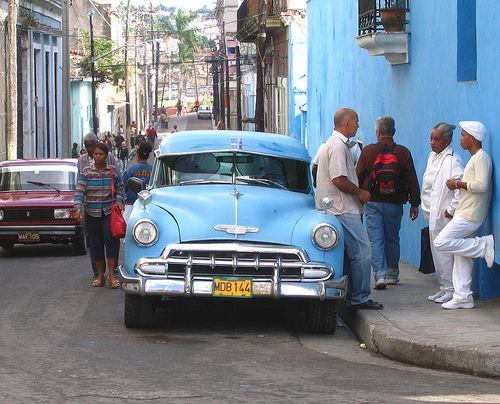Cuba's Newest Reform Authorizes Sale And Import Of New And Used Cars To Individuals

It’s a new year, and a new dawn, in Cuba: The Communist government of the Caribbean island nation is introducing small reforms in its tightly state-controlled economic system.
Since the last quarter of 2013, President Raúl Castro’s administration has allowed self-employment (albeit, in just a few fields approved by the government), started to eliminate the double currency system with a peso for citizens and another convertible peso for tourists, and made it possible for Cubans to move more freely to and from abroad. And in the most recent big gesture, as the year was ending, the Cuban government approved a decree allowing citizens to sell and buy vehicles without official interference. The law came into effect on Friday, marking a huge milestone in the island's history and offering an important bit of free market in Cuba.
After 50 years of close government control, the Council of Ministers approved the “retail sale of motorcycles, cars, trucks and minibuses, both new and second-hand, for Cubans, resident aliens and diplomats,” reported the official Cuban news outlet Granma. The law superseded a previous regulation from 2011, which said any sales of second-hand vehicles had to get express authorization by the government -- something that didn't happen often.
Castro called the authorization system “inadequate and obsolete” and said it had allowed corruption and black marketeering. “The low availability of cars, the restrictions to just a handful of individuals, and the existence of a different market that sold at inflated prices generated dissatisfaction, nonconformity and, in several cases, led to the scheme to turn into a source of speculation and enrichment,” read the official release in Granma.
According to the National Registry of Vehicles, one-third of the cars sold by the state in 2012 were resold shortly after. “This indicates that the process enriched somebody along the way,” noted the statement. Even the authorizations by the government were being sold on the black market.
Government approval will still be required for car imports, of both new and second-hand vehicles, which will be carried out by authorized firms yet to be determined. What won't be allowed, at least for now, is the sale of cars by companies to citizens, meaning that transactions can only be between individuals.
The reform is part of new social and economic policies approved by the Communist party in 2011 and developed by the Castro regime over the past two years. Among the new policies, the most talked-about has been the immigration reform that allows Cubans to travel with their passport without an official letter and permits the return of expats to visit family.
By the end of 2013, 250,000 Cubans had traveled outside of their homeland and returned, without the massive exodus feared by the government. Self-employment has been embraced by 445,000 Cubans, which has lowered the unemployment rate to 3.5 percent, according to official statistics, the only ones available.
© Copyright IBTimes 2024. All rights reserved.





















